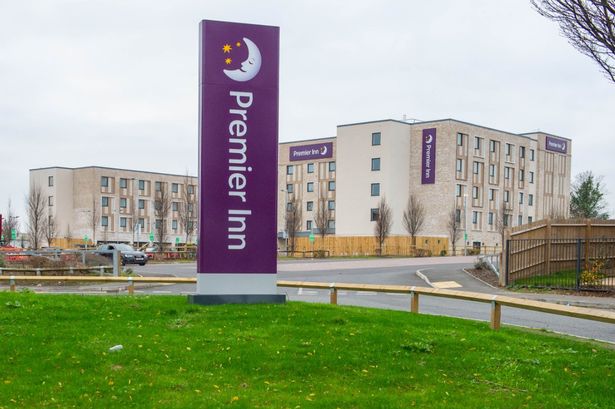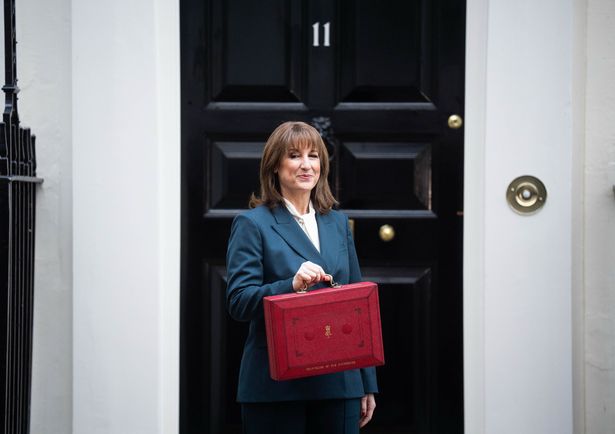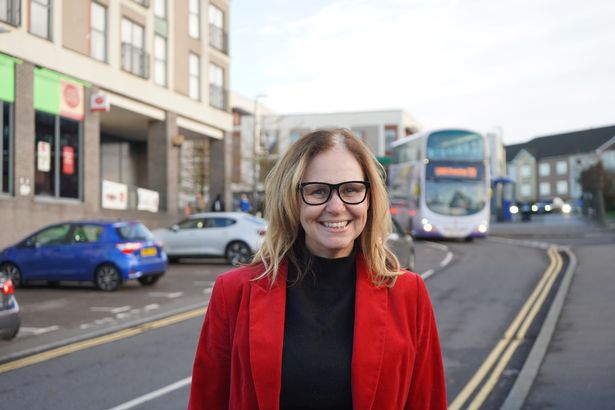“These new powers are a real vote of confidence in our region taking more control of our future” The new Premier Inn at Cribbs Causeway(Image: Paul Gillis/Bristol Live)
The new Premier Inn at Cribbs Causeway(Image: Paul Gillis/Bristol Live)
Visitors to Bristol and the West of England could have to start paying an extra ‘tourist tax’ after the Government announced in the Budget that it would launch a consultation on the idea over the winter. The exact amount visitors to hotels, B&Bs, guesthouses, Airbnbs and will have to pay for an overnight stay has not yet been set, but it could vary from the £1.30 per person per night in Wales to the five per cent on the cost that is being introduced next year in parts of Scotland.
Hotels in the city centre typically charge anything from £100 to £300 a night now. A standard room at the Premier Inn at Finzels Reach in the heart of the city will cost £200 during this week, for example, rising to £215 at the weekend. A five per cent tax on that would cost a couple booking a room an extra £20 if applied per person per night, or £10 if applied per room. A seven per cent levy, which is being introduced by the local authority in Aberdeen, would add £14 per room per night.
The ‘visitor levy’ was announced by Chancellor Rachel Reeves in her budget today, Wednesday, November 26. Some overnight ‘visitor stays’ would be exempt, including homeless hostels, emergency accommodation, and Gypsy and Traveller sites, and metro mayors would have the power to add other exemptions on a local basis. The power and decision to introduce such a tax will be devolved to an area’s regional metro mayor, and the West of England’s metro mayor Helen Godwin welcomed the news.
“Residents and visitors alike know how special our part of the world is, from our people to our culture to our nature,” she said. “Tourism is now worth a record £2.7 billion to the West’s economy, which is a key industry for our new Growth Strategy over the coming decade.
“These new powers are a real vote of confidence in our region taking more control of our future. Proceeds from an overnight visitor levy, that people from across the West are used to paying on holiday ourselves, have the potential to support and enhance the sector’s businesses and workers – including with better transport options,” she added.
READ MORE: Plans to introduce ‘tourist tax’ across England – what that would mean for BristolREAD MORE: Tax AirBnBs not us, say furious Bristol hoteliers
Ms Godwin’s West of England Combined Authority, which she runs with the leaders of the local councils from Bristol, Kingswood and Bath, would be given the authority to set the level, how the levy is calculated and what that money would then be spent on.
It could bring millions to WECA’s coffers and is the first time the metro mayor running the region has been given tax-raising powers themselves – until now their budgets have all come directly from Westminster.
Tourist taxes are common in many European cities popular with Brits who go on city breaks, like Paris, Barcelona, Lisbon, and Berlin – hotels usually either add the levy to a customer’s bill when booking, or ask for it when they check in.
 Chancellor of the Exchequer Rachel Reeves poses outside 11 Downing Street, London, with her ministerial red box, before delivering her Budget in the House of Commons. Picture date: Wednesday November 26, 2025.(Image: James Manning/PA )
Chancellor of the Exchequer Rachel Reeves poses outside 11 Downing Street, London, with her ministerial red box, before delivering her Budget in the House of Commons. Picture date: Wednesday November 26, 2025.(Image: James Manning/PA )
The devolved Governments in Scotland and Wales already have the power – with city councils in Glasgow, Aberdeen and Edinburgh already pledging to introduce the levy – which will be five per cent in Edinburgh – next summer.
Liverpool and Manchester already have a visitor levy of sorts, despite not having the power directly to do so. This levy has been introduced through a workaround using the Business Improvement District system – in Liverpool, around 100 hotels in the city centre charge guests a £2 per night fee, while in Manchester it’s £1 a night, with the money going to the BIDs who, like Bristol city centre ’s BID, pay for everything from events and Christmas decorations to enhanced street cleaning or security
Cllr Tony Dyer, the leader of Bristol City Council, said the key aspect of the Chancellor’s decision was that tax-raising powers were being entrusted to metro mayors. “This is about more than introducing a levy – it’s about giving regions and local councils the power to make decisions that work for our communities.” he said.
“Tourism and hospitality are at the heart of Bristol’s economy, supporting thousands of jobs and local businesses. This levy should be a tool to strengthen that success, helping the sector grow sustainably while ensuring the benefits are felt across our communities.
READ MORE: Number of homes ‘lost to Airbnb’ in Bristol now above 2,000READ MORE: Tourist tax edges closer but some claim it ‘will drive people away’
“We will work closely with businesses to get this right and make sure any revenue raised is used in ways that bring real benefits locally for residents, visitors, and the sector itself,” he added.
In South Gloucestershire, there was also support. Cllr Maggie Tyrrell, the council leader, said: “Tourism is an important part of the region’s economy, and this levy gives us a sustainable way to support it.
“Through reinvesting in transport and local services, we can ensure the benefits of tourism in the area are felt across all our communities,” she added.
The news hasn’t gone down well with the hotel and hospitality industry, which had been calling for a reduction in the 20 per cent VAT they already pay. Kate Nicholls, the chair of UKHospitality, said a five per cent levy on overnight stays could raise £518 million in additional taxes, which people staying in hotels would be the ones paying.
 Mayor of the West of England Helen Godwin
Mayor of the West of England Helen Godwin
The Bristol Hoteliers Association strongly objected back in March, when Lib Dems at City Hall proposed that Bristol should employ the same BID work-around already in use in Liverpool and Manchester.
The chair of the hotels association in Bristol called on the council to properly regulate and tax Airbnbs instead – there are already more than 2,000 ‘entire home’ Airbnbs available in the city of Bristol to book instead of a hotel or B&B room, but they are far less regulated than hotels or long-term residential lets, and far less taxed too.
In March the BHA said a tourist tax could be a ‘disastrous blow’ for the hotel businesses in Bristol. Now they said they want more details on how it will actually work.
“As for the tourist tax, we know that many European cities already have this, but in most of these places, hospitality is taxed at 5% VAT rather than the 20% here,” said Adam Flint, Chair of Bristol Hoteliers Association (BHA). “Add to that the Chancellors decision to freeze personal tax thresholds for a further three years, which means disposable incomes will be reduced in real terms, further limiting people’s ability to spend on hospitality and leisure, and they are certainly likely to be deterred from going to places charging the Tourist Tax.
“We would also be interested to know more details, such as who will run the tourist tax and where, exactly, the money it generates will be used. The concern is the monies will be used to fill underinvested areas of local council, rather than supporting new initiatives that benefit the industry.
“But overall, given the huge contribution hospitality has made to the nation’s economy, this budget has again given us cold comfort as we head into the winter,” he added.
The Budget announcement is that Airbnbs could be included in the metro mayor’s levy, but it would be down to the individual metro mayors on how far to implement the levy and how much it should be. The Government said there will be a 12-week national consultation period on the idea.
